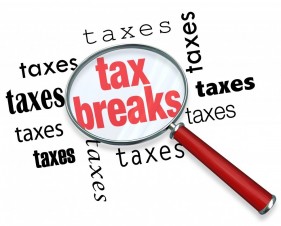Tax Minimisation Strategies
CONSIDER THE FOLLOWING ITEMS
1. Delay Deriving Assessable Income
- Timing of Derivation of Income until post June 30.
- Timing of Raising a Bill for Incomplete Work (Businesses)
Where appropriate, and if it will not adversely affect your cash flow, consideration should be given to deferring the recognition of income until after 30 June 2017. Please note, not banking amounts received before June 30 until after June 30 is not acceptable. The income is considered to have been earned when the money has been received or the goods or services are provided (depending on whether you are on a cash or accruals basis).
- Cash Basis Income - Some income is properly taxable on a cash receipts basis rather than on an accruals basis (e.g. rental income or interest income in certain cases). You should examine whether income can be properly deferred in those cases.
- Lump Sum Amounts - Where a lump sum is (or has been) received close to financial year-end, taxpayers should be examining whether any of those amounts can be delayed or spread over future periods.
2. Bringing Forward Deductible Expenses or Losses
- Prepayment of Expenses - In some circumstances, small business entities (SBE) and indviduals who derive passive type income (such as rental income and dividends) should consider pre-paying expenses prior to 30 June 2017. A tax deduction can be brought forward into this financial year for expenses like insurance premiums, subscriptions and memberships, travel, advertising and interest. A deduction for prepaid expenses will generally be allowed where the payment is made before 30 June 2017 for services to be rendered within a 12 month period.
- Superannuation Contributions - In addition, some individuals may be entitled to a Government Co-Contribution if they ake a non-concessional contribution.
- Capital Gains/Losses - timing of sale transactions.
- Accounts Payable - If services have been provided to you ensure that you have an invoice dated before 1 July 2017.
Businesses should also consider:
- Stock Valuation Options - Review your Stock on Hand before June 30 to ensure that it is valued at the lower of Cost or Net Realisable Value. Any stock that is carried at a value higher than you could realise on sale (after all costs associated with the sale) should be written down to that Net Realisable Value in your stock records.
- Compulsory Superannuation Guarantee - payments by 30 June. However, if you want a tax deduction in the 2016/17 year the superannuation fund must receive the funds by 30 June 2017. The Tax Office deems a contribution made by electronic transfer is not paid until the amount is actually credited to a super fund’s bank account. As such, don’t leave the payment to the last minute.
- Write-Off Bad Debts – you should write off bad debts from your debtors system before June 30. A Bad Debt is an amount that is owed to you that you consider is uncollectable or it is not economically feasible to pursue collection. Unless these debts are physically recorded as a Bad Debt in your system before 30th June 2017, a deduction will not be allowable in the current financial year.
- Repairs and Maintenance Costs – Where possible, consider bringing them forward to before June 30.
- Obsolete Plant and Equipment should be scrapped or decommissioned prior to June 30, 2017 to enable the book value to be claimed as a tax deduction.
For the current 2016/17 financial year businesses may want to consider bringing forward asset purchases to before June 30 to take advantage of:-
- The Immediate Write Off for individual small business assets less than $20,000
- An Immediate Tax Deduction of the balance of the Depreciation pool is allowed if the balance is less than $20,000 over this period.
Other 2017 Year End Tax Planning Opportunities
- Back to the overview of the 2017 Year End Tax Planning Guide
- Back to the top of Tax Minimisation Strategies
- Other Year End Issues Checklist - A checklist of obligations and requirements to be addressed prior to the end of the financial year for individuals and businesses.
Disclaimer: This newsletter contains general information only. No responsibility can be accepted for errors, omissions or possible misleading statements. No responsibility can be accepted for any action taken as a result of any information contained in these articles. It is not designed to be a substitute for professional advice and does not take into account your personal circumstances.













